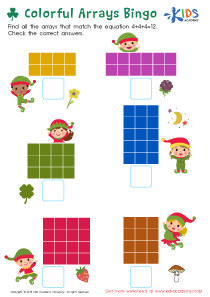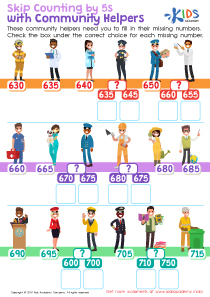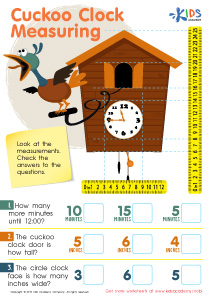Counting money Grade 2 Math Worksheets
3 filtered results
-
From - To
Welcome to our Grade 2 Math Worksheets dedicated to counting money! Designed specifically for second graders, these engaging worksheets help young learners practice and master essential money skills. Students will explore various activities that reinforce the concepts of identifying coins and bills, counting their values, and making change. Each worksheet features colorful illustrations and interactive exercises that make learning fun and exciting. Perfect for classroom use or homework, these resources aim to build confidence in handling money, an important life skill. Plus, they are aligned with educational standards to ensure a comprehensive learning experience. Let’s make math magical with money skills!
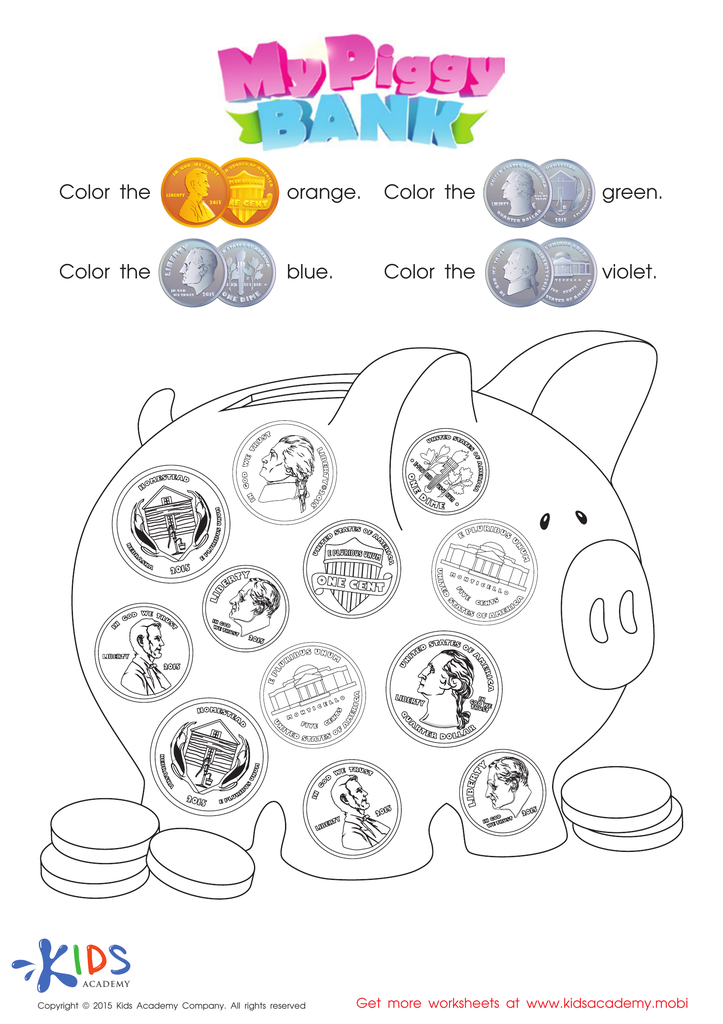

Recognizing Money Money Worksheet
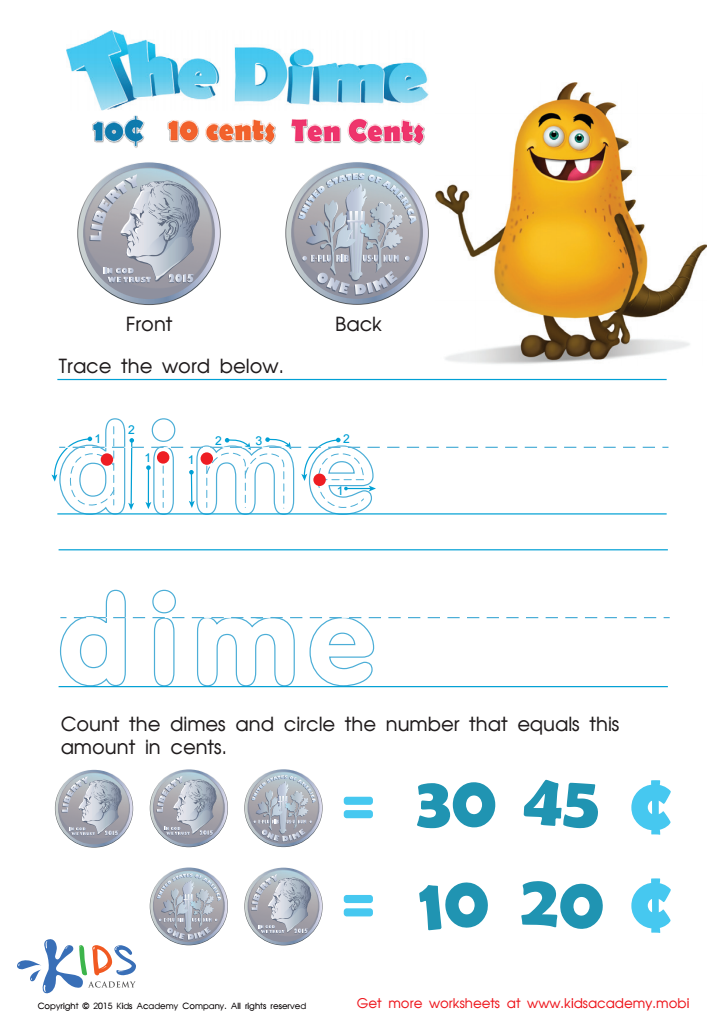

Ten Cents or the Dime Money Worksheet
Counting money in Grade 2 math is a crucial skill that goes beyond mere arithmetic; it lays the foundation for financial literacy and everyday decision-making. At this stage, children learn to identify coins and bills, understand their values, and practice making change. Mastering these skills helps pupils develop critical thinking and problem-solving abilities, as they calculate totals and learn to budget for purchases.
Teachers and parents play an integral role in reinforcing these concepts. Engaging children in real-life scenarios, such as using play money during shopping plays or counting allowances, makes the learning process enjoyable and relevant. This authentic practice not only fosters confidence but also imbues children with an essential sense of responsibility regarding money management.
Moreover, counting money provides opportunities for social and emotional skill development. As kids navigate transactions, they learn about trust, honesty, and the importance of valuing resources. In today's consumer-driven world, early financial education is vital in preventing future difficulties in managing personal finances. By prioritizing money counting skills in Grade 2, parents and teachers can empower children with the knowledge to make informed choices, laying a strong foundation for a financially-savvy future.



 Assign to My Students
Assign to My Students










